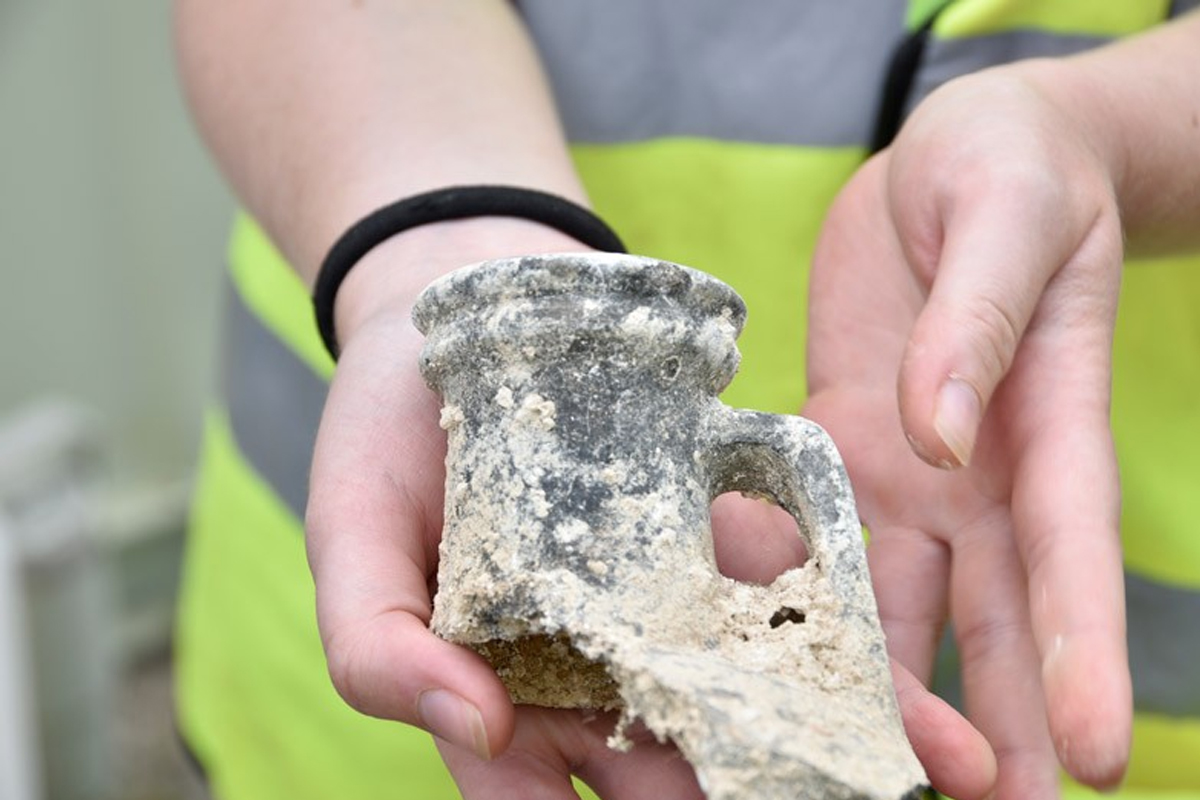Archaeologists from Bournemouth University (BU) have been excavating several Iron Age settlements near the village of Winterborne Kingston in southern England.
The team has uncovered 2,000-year-old burial pits containing the skeletal remains of ancient Britons. Alongside the burials, Roman-style wine cups and flagons were found, offering a unique insight into how the Britons adapted to life following the Roman invasion of AD 43.
The drinking vessels appear Roman in form, however, they are local copies of Mediterranean style vessels manufactured in nearby Poole harbour. According to the researchers, this suggests that Mediterranean alcohol had already become a popular addition in the societal drinking habits of ancient Britons.
“They are made from a local fabric by a local potter, but they are very much in a Roman style and not something we had found in local traditions before,” said Kerry Barras, a visiting researcher at Bournemouth University.
Dr Miles Russell, Principal Academic in Archaeology at Bournemouth University, said: “It’s all very well learning about the Roman legions and their conquests, but we wanted to find the farmsteads and burials that tell us what life was like for ordinary Britons and what happened to them at the time – did they become part of the wider empire, did they resist, or did they carry on living as they had always done? So finding a site like this was critical.”
In another grave, archaeologists discovered the burials of two dogs. Britons used dogs for hunting and exported them to the Roman elite. Dr. Russell suspects that the dogs may have been sacrificed to the gods, given their intentional placement in the grave.
Header Image Credit : BU
Sources : Bournemouth University





